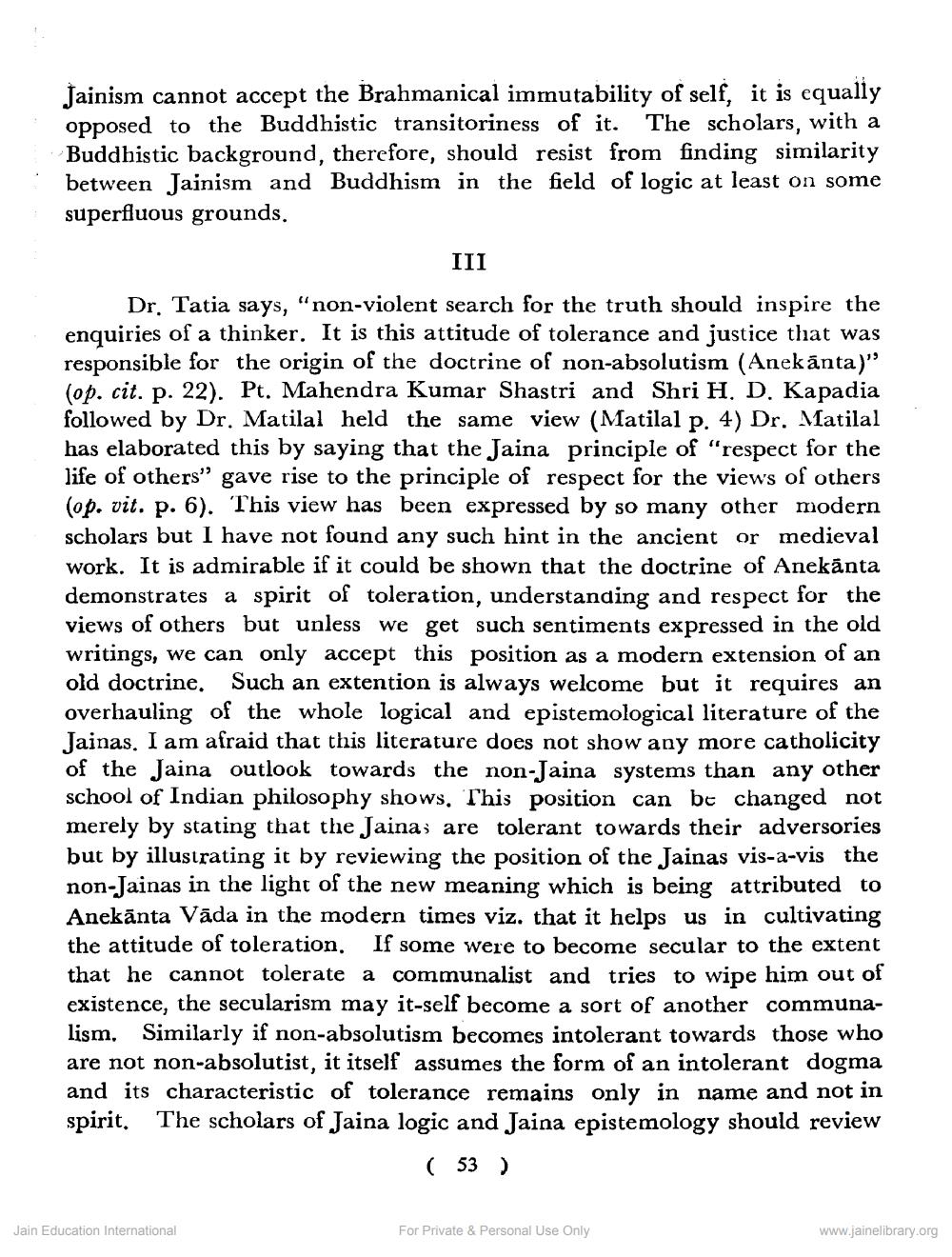________________
Jainism cannot accept the Brahmanical immutability of self, it is equally opposed to the Buddhistic transitoriness of it. The scholars, with a Buddhistic background, therefore, should resist from finding similarity between Jainism and Buddhism in the field of logic at least on some superfluous grounds.
III
Dr. Tatia says, "non-violent search for the truth should inspire the enquiries of a thinker. It is this attitude of tolerance and justice that was responsible for the origin of the doctrine of non-absolutism (Anekanta)" (op. cit. p. 22). Pt. Mahendra Kumar Shastri and Shri H. D. Kapadia followed by Dr. Matilal held the same view (Matilal p. 4) Dr. Matilal has elaborated this by saying that the Jaina principle of "respect for the life of others" gave rise to the principle of respect for the views of others (op. vit. p. 6). This view has been expressed by so many other modern scholars but I have not found any such hint in the ancient or medieval work. It is admirable if it could be shown that the doctrine of Anekānta demonstrates a spirit of toleration, understanding and respect for the views of others but unless we get such sentiments expressed in the old writings, we can only accept this position as a modern extension of an old doctrine. Such an extention is always welcome but it requires an overhauling of the whole logical and epistemological literature of the Jainas. I am afraid that this literature does not show any more catholicity of the Jaina outlook towards the non-Jaina systems than any other school of Indian philosophy shows. This position can be changed not merely by stating that the Jaina, are tolerant towards their adversories but by illustrating it by reviewing the position of the Jainas vis-a-vis the non-Jainas in the light of the new meaning which is being attributed to Anekānta Vāda in the modern times viz. that it helps us in cultivating the attitude of toleration. If some were to become secular to the extent that he cannot tolerate a communalist and tries to wipe him out of existence, the secularism may it-self become a sort of another communa
Similarly if non-absolutism becomes intolerant towards those who are not non-absolutist, it itself assumes the form of an intolerant dogma and its characteristic of tolerance remains only in name and not in spirit. The scholars of Jaina logic and Jaina epistemology should review
( 53 )
Jain Education International
For Private & Personal Use Only
www.jainelibrary.org




